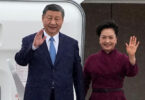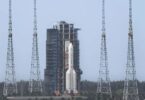Addressing the ground breaking ceremony of AllamIqbal Industrial City at Faisalabad, in Punjab, Prime Minister Imran Khan emphasised for doing away with anti-investors mindset. He rightly highlighted the inevitable linkage between industrialisation and lowering of poverty level in the country. Allama Iqbal Industrial City is one of the nine special economic zones that have been planned under the framework of China-Pakistan Economic Corridor to house the relocated Chinese industries and open vistas of joint ventures between Pakistan and Chinese entrepreneurs. Next in line will be the groundbreaking function of Rashakai special economic zone in Khyber Pukhtunkhwa.
The Prime Minister genuinely expressed the hope that Chinese investors will transfer state-of-the- art technology and extend professional assistance in its indegenisation in the industrial base of Pakistan in addition to setting up high-tech institutes of technical and vocational training. In this context he referred to the assistance provided to Vietnam for transfer and indegenisation of modern Chinese technology to enhance production and exports by skill development of local manpower.
The anti-investors’ mindset was not built in day or year. Unfortunately, it is the product of well calculated agenda implemented in the past. The foundation stone of it had been laid in nationalization of all categories of industries, including the rice husking mills and cotton inning small units, and private banks in 1972. This ruthless policy slammed the doors of bringing in new technologies and product innovations by the then dynamic and visionary entrepreneurial class which had flourished in the decade of 60s by virtue of liberal fiscal and monetary incentives made available to them. In that decade an ambitious and investors’ friendly industrial policy had been formulated and implemented in letter a d spirit.
Implantation of consistent policy did wonders and war goods industries grew and moved on the path of modernisation by induction and indegenisation of new technologies. But the civilian goods industry did not go forward and remained stuck in second generation technology. Chairman State Engineering Corporation had told the business leaders in a meeting of Islamabad Chamber of Commerce and Industry in 2018 to opt for the application of fourth and fifth generation technologies if they are really interested in joint ventures with Chinese investors in the special economic zones.
The second setback came for the industry and business in mid 1990s when an adhoc policy of very expensive thermal power generation was implemented and shady power purchase agreements were made with nine independent power producers. These open ended and free from time limit agreements included the 40 percent idle capacity charges clause, which devours Rs. 850 billion taxpayers’ money every year. The same vested interest lobby is still staying put in the corridors of powers. The barrage of regressive taxes which had been levied thirty years ago damaged the investment environment. The rate of these taxes is being revised upward in the annual budgets and frequent doses of mini-budgets. That is why business community has been continuously complaining against the regressive, complex and cumbersome taxation regime and regular hiking of fuel, electricity and gas prices. Changing of anti-investors mind set seems to be a herculean task. Let us hope PTI government will succeed in doing away with this mindset.






